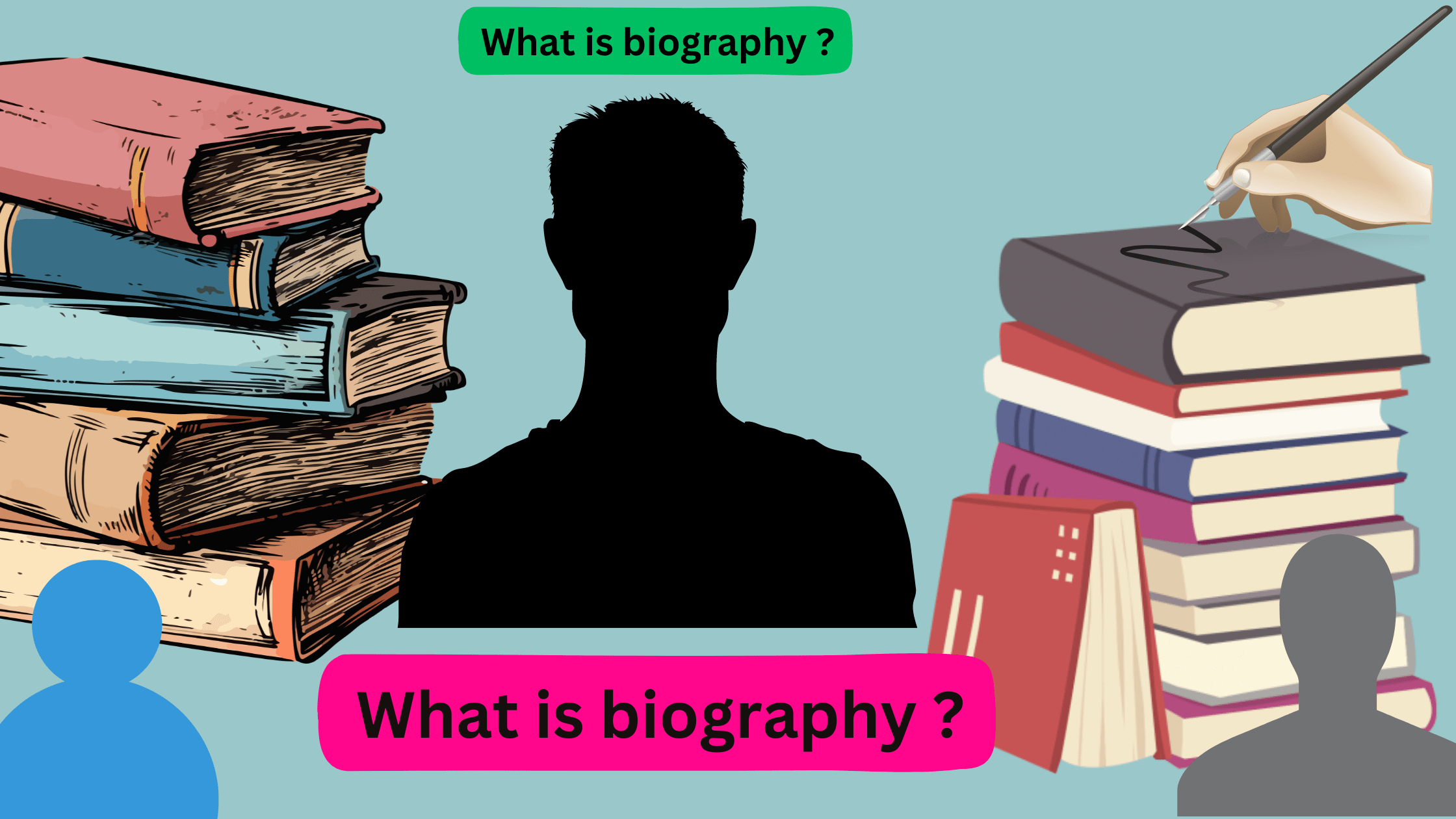The Future of Biographical Writing
The art Future of biographical writing has been a treasured tradition for centuries, providing us with a glimpse into the lives of notable individuals who have shaped our world. But as we move into the future, the landscape of biographical writing is undergoing a significant transformation. This article explores the future of biographical writing, uncovering the emerging trends and technologies reshaping the way we research, document, and consume biographical information.
With the advent of digital platforms and advanced AI algorithms, biographical writing is becoming more accessible and immersive than ever before. Readers are no longer confined to static texts; they can now engage with interactive timelines, multimedia elements, and virtual reality experiences that bring biographies to life.
Moreover, the role of the biographer is evolving, with a growing emphasis on diversity and inclusivity. While traditional biographies have focused predominantly on historical figures, contemporary biographical writing is expanding to include marginalized voices and underrepresented communities, enriching our understanding of human experiences across different cultures and social backgrounds.
In this fast-paced digital age, biographical writing preserves the legacy of individuals while adapting to the evolving needs and preferences of modern readers. Join us as we delve into the exciting possibilities and challenges that lie ahead for the future of biographical writing.
Evolution of Biographical Writing
Biographical writing has a rich and storied history, evolving alongside the changing needs and preferences of readers over the centuries. In ancient times, biographical accounts were often woven into epic tales and chronicles, serving as a means to preserve the legacies of influential figures and commemorate their contributions to society.
As the art of writing progressed, biographies began to emerge as distinct literary forms, with authors delving deeper into the personal lives and experiences of their subjects. The Renaissance period saw a surge in biographical writing, as scholars and intellectuals sought to document the lives of luminaries in the arts, sciences, and political realms. From Vasari’s “Lives of the Most Excellent Painters, Sculptors, and Architects” to Plutarch’s “Parallel Lives,” these early biographies not only illuminated the achievements of their subjects but also provided insights into the cultural and historical contexts that shaped their lives.
In the 19th and 20th centuries, biographical writing underwent a significant transformation, with the emergence of more nuanced and analytical approaches. Biographers began to explore the psychological and emotional dimensions of their subjects, delving into the complexities of human nature and the factors that influenced their decision-making and life trajectories. This shift towards a more holistic understanding of biographical subjects paved the way for the development of modern biographical writing, which continues to evolve and adapt to the changing needs of readers in the 21st century.
The Impact of Technology on Biographical Writing
The digital revolution has had a profound impact on the world of biographical writing, ushering in a new era of possibilities and challenges. The advent of online platforms, digital archives, and search engines has dramatically expanded the accessibility of biographical information, enabling researchers and writers to uncover a wealth of primary sources and archival materials that were once difficult to access.
Furthermore, the rise of multimedia and interactive technologies has transformed the way biographies are presented and consumed. Readers are no longer limited to traditional text-based narratives; they can now engage with interactive timelines, multimedia elements, and even virtual reality experiences that bring the subject’s life and times to vivid life. These technological advancements have the potential to create more immersive and engaging biographical experiences, allowing readers to truly connect with the subject on a deeper level.
However, the digital landscape has also introduced new complexities and ethical considerations for biographical writers. The abundance of information available online can be both a blessing and a curse, as biographers must navigate the delicate balance between accuracy, privacy, and the need to tell a compelling story. Additionally, the rise of social media and digital footprints has prompted biographers to grapple with the implications of documenting individuals’ lives in an increasingly public and interconnected world.
Challenges and Opportunities in Modern Biographical Writing
As biographical writing continues to evolve in the digital age, it faces a unique set of challenges and opportunities. One of the primary challenges is the sheer volume of information available, which can be overwhelming for biographers and readers alike. With the proliferation of online sources, social media, and personal archives, the task of sifting through and verifying the accuracy of biographical data has become increasingly complex.
Biographers must also navigate the delicate balance between preserving the privacy of their subjects and the public’s desire for intimate details and insider perspectives. In an era where personal information is readily available online, biographers must exercise caution and sensitivity when handling sensitive or potentially controversial aspects of their subjects’ lives.
Despite these challenges, the digital landscape also presents exciting opportunities for biographical writing. The ability to incorporate multimedia elements, interactive timelines, and virtual reality experiences into biographies can create more immersive and engaging narratives. Moreover, the democratization of publishing platforms has opened the door for a more diverse range of voices and perspectives to be represented in biographical writing, giving a platform to marginalized individuals and underrepresented communities.
The Role of Authenticity in Biographical Writing
At the heart of biographical writing lies the pursuit of authenticity – the desire to capture the essence of an individual’s life and experiences with honesty, nuance, and respect. In an age where information is readily available and easily manipulated, the role of authenticity in biographical writing has become increasingly crucial.
Biographers must navigate the complex interplay between factual accuracy, subjective interpretation, and the inherent limitations of historical records and personal accounts. They must strive to present a balanced and multifaceted portrait of their subjects, acknowledging the complexities and contradictions that often define the human experience.
Authenticity in biographical writing also extends beyond the factual details; it encompasses the ability to convey the emotional and psychological dimensions of a subject’s life. Effective biographers must possess the empathy and insight to delve into the inner workings of their subjects, capturing their motivations, struggles, and triumphs in a way that resonates with readers.
Trends in Biographical Writing
As the landscape of biographical writing continues to evolve, several key trends have emerged that are shaping the future of the genre. One of the most significant trends is the growing emphasis on diversity and inclusivity. Biographers are increasingly seeking to document the lives of individuals from marginalized communities, giving voice to the stories and experiences that have long been overlooked or underrepresented in traditional biographical narratives.
Another trend is the rise of collaborative and interdisciplinary approaches to biographical writing. Biographers are embracing the expertise of historians, sociologists, psychologists, and other scholars to provide a more holistic and nuanced understanding of their subjects. This collaborative approach not only enhances the depth and accuracy of biographical accounts but also fosters a more multidimensional understanding of the subject’s life and times.
Additionally, the increasing integration of digital technologies into biographical writing has given rise to new and innovative storytelling techniques. From interactive timelines and multimedia elements to virtual reality experiences, biographers are leveraging these tools to create more immersive and engaging narratives that captivate readers and bring the subject’s life to vivid life.
The Future of Biographical Writing: AI and Machine-Generated Biographies
As the world of technology continues to evolve, the future of biographical writing may be increasingly shaped by the integration of artificial intelligence (AI) and machine learning algorithms. While the idea of AI-generated biographies may initially seem unsettling, the potential applications of this technology in the realm of biographical writing are both intriguing and complex.
One potential application of AI in biographical writing is the automation of certain research and data-gathering tasks. AI algorithms could be trained to scour vast troves of digital archives, social media platforms, and other online sources to uncover relevant biographical information, freeing up biographers to focus on the creative and analytical aspects of their work.
Furthermore, AI-powered language models could potentially assist in the drafting and structuring of biographical narratives, drawing upon a vast repository of knowledge and writing techniques to generate coherent and compelling stories. However, the ethical implications of this technology must be carefully considered, as the potential for bias, inaccuracy, and the erosion of human agency in the biographical writing process must be rigorously addressed.
The Importance of Ethical Considerations in Biographical Writing
As biographical writing continues to evolve, the importance of ethical considerations in the process has become increasingly paramount. Biographers must navigate a delicate balance between the pursuit of truth, the preservation of privacy, and the potential impact of their work on the lives of their subjects and their loved ones.
One of the primary ethical challenges in biographical writing is the handling of sensitive or potentially damaging information. Biographers must exercise discretion and sensitivity when dealing with personal details, mental health struggles, or other aspects of their subjects’ lives that could be perceived as intrusive or damaging. The decision to include or omit certain information requires a deep understanding of the potential consequences and a commitment to respecting the subject’s dignity and privacy.
Additionally, biographers must be cognizant of the power dynamics inherent in their work, recognizing that their narratives have the potential to shape public perception and influence the legacy of their subjects. This awareness demands a heightened sense of responsibility and a commitment to presenting a balanced and nuanced portrait, one that avoids sensationalism or undue influence.
The Role of Biographical Writing in Preserving History and Culture
Biographical writing plays a vital role in preserving the rich tapestry of human history and culture. By documenting the lives and experiences of individuals, biographers not only illuminate the personal narratives of their subjects but also provide valuable insights into the broader social, political, and cultural contexts that shaped their lives.
Through the lens of biographical writing, readers can gain a deeper understanding of the pivotal moments and transformative events that have shaped the course of human civilization. From the groundbreaking achievements of scientists and artists to the courageous acts of social and political activists, biographical accounts serve as a powerful tool for preserving and transmitting these legacies to future generations.
Moreover, biographical writing plays a crucial role in amplifying the voices and experiences of marginalized communities, ensuring that their stories are not lost or forgotten. By shining a spotlight on the lives and contributions of individuals who have been historically underrepresented or overlooked, biographers can help to challenge dominant historical narratives and foster a more inclusive and equitable understanding of the past.
Conclusion: The Enduring Relevance of Biographical Writing
As we look towards the future, the art of biographical writing remains an enduring and vital form of storytelling, one that continues to captivate and inspire readers across generations. Despite the transformative changes brought about by technological advancements, the fundamental human desire to understand and connect with the lives of others remains a driving force in the world of biographical writing.
Whether through the rich tapestry of traditional biographical narratives or the immersive and innovative digital experiences of the future, the power of biographical writing to illuminate the human experience, preserve history and culture, and inspire us to reflect on our own lives and legacies is undeniable. As the landscape of biographical writing evolves, it is our responsibility as readers, writers, and custodians of this literary tradition to embrace the challenges and opportunities that lie ahead, ensuring that the stories of our past and present continue to shape and enrich the future.


